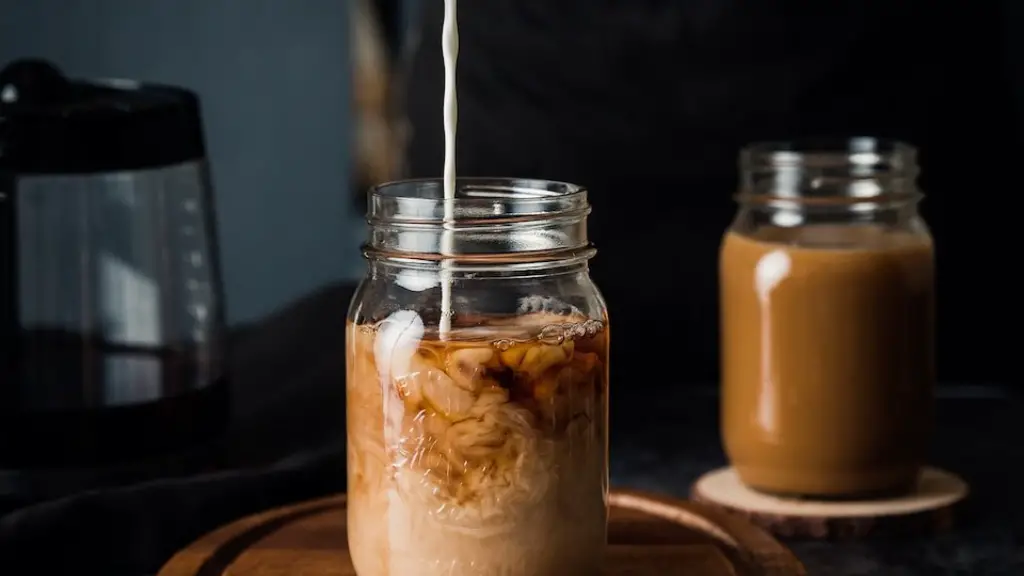Probiotics are beneficial bacteria or microorganisms that are naturally present in the digestive tract of humans and some other animals. Although these microorganisms can be taken as dietary supplements, they can also be found in some foods, such as yogurt and fermented foods. In recent years, probiotics have become increasingly popular due to their potential health benefits. Interestingly, it has been suggested that caffeine intake may affect the efficacy of probiotics. Therefore, the question many people have is whether or not it is safe to drink coffee after taking probiotics.
A study published in 2019 investigated how caffeine intake affects the efficacy of probiotics. The study found that the bacteria levels and diversity decreased after the consumption of probiotic supplements and the caffeine. This suggests that caffeine may inhibit the growth and survival of the probiotic bacteria. As a result, drinking coffee after taking probiotics may reduce the effectiveness of the supplement.
However, further research is needed to fully understand the interaction between caffeine and probiotics. Some experts suggest that coffee should be avoided for at least one hour after taking probiotics. This is to ensure that sufficient time has elapsed for the bacteria to become established in the digestive tract. Additionally, probiotic supplements containing live cultures should be taken with food to help maintain their activity in the gut.
Furthermore, it is important to note that the health benefits associated with probiotics are not the same for all individuals. Therefore, it is important to consult with a qualified health care provider to determine the best approach to using probiotics. Additionally, it is important to note that probiotics may not be appropriate for everyone and should not be taken without medical advice.
In conclusion, it appears that drinking coffee after taking probiotics may reduce the effectiveness of the supplement. Therefore, it is important to consult with a healthcare professional to determine the best approach when taking probiotics. Additionally, it is important to wait at least one hour after taking probiotics before drinking coffee. However, further research is needed to confirm the interaction between caffeine and probiotics.
The Types and Benefits of Probiotics
Probiotics are a diverse group of beneficial microorganisms, most commonly bacterial strains, that are naturally present in the human digestive tract and which can also be consumed through supplements or some foods. Different types of bacteria, such as Lactobacillus and Bifidobacterium, are considered probiotics. The health benefits of probiotics are widely studied. Health benefits include improving digestive health, boosting the immune system and helping to reduce symptoms of certain diseases.
Studies have suggested that probiotics may have a role in reducing the risk of certain chronic diseases, such as type 2 diabetes, obesity and heart disease. Probiotics can also help balance the bacteria in the digestive tract, which is important for overall health. Additionally, probiotics may help reduce the risk of foodborne illnesses, improve nutrient absorption and reduce allergies.
There are many different types of probiotics available and they are often categorized according to the strain or species of bacteria they contain. Some of the most common types of probiotics include Lactobacillus and Bifidobacterium, which are both found naturally in the digestive tract. Additionally, Saccharomyces boulardii is another popular probiotic, which is a type of yeast.
When choosing a probiotic supplement, it is important to choose one that contains live cultures in order to get the most benefit from the supplement. Additionally, it is a good idea to speak to a healthcare professional to determine which type and dose of probiotic is most suitable for your needs.
The Risks of Taking Probiotics
Although probiotics can be beneficial to health, it is important to be aware of the potential risks associated with taking probiotics. Adverse effects, such as an allergic reaction or mild digestive upset, have been reported in some people. Additionally, probiotic supplements should be taken with caution in people with compromised immune systems or those taking certain medications.
It is also important to note that probiotics can affect the absorption of certain medications, such as antibiotics. Additionally, although probiotics are generally safe, there is a small risk of infection in rare cases. As a result, it is important to speak to your healthcare provider before taking a probiotic supplement.
Furthermore, it is important to be aware that the quality and safety of probiotic supplements can vary widely. Not all probiotics are tested for quality and safety, so it is important to buy from a reputable brand that has been assessed for quality and purity.
Final Thoughts on Drinking Coffee After Probiotics
In summary, it appears that drinking coffee after taking probiotics may reduce the effectiveness of the supplement. Therefore, it is important to consult with a healthcare professional to determine the best approach when taking probiotics. Additionally, it is important to wait at least one hour after taking probiotics before drinking coffee. However, further research is needed to confirm the interaction between caffeine and probiotics.
It is also important to be aware of the potential risks of taking probiotics, including the risk of infection in rare cases. Finally, it is important to note that probiotics are not suitable for everyone and should not be taken without medical advice.



